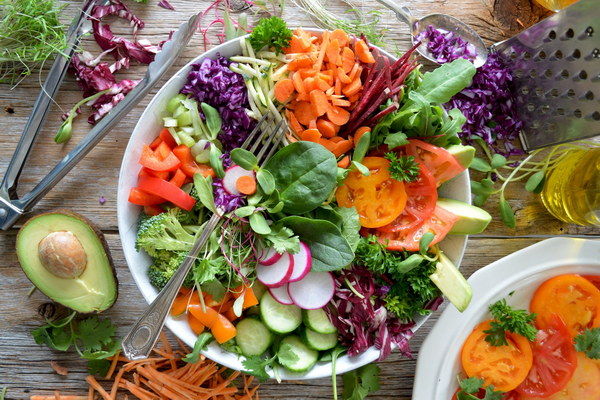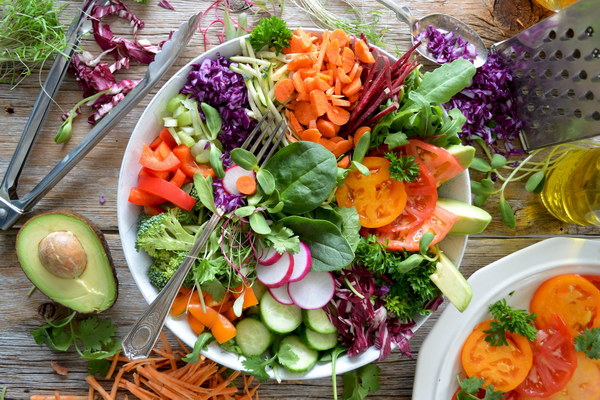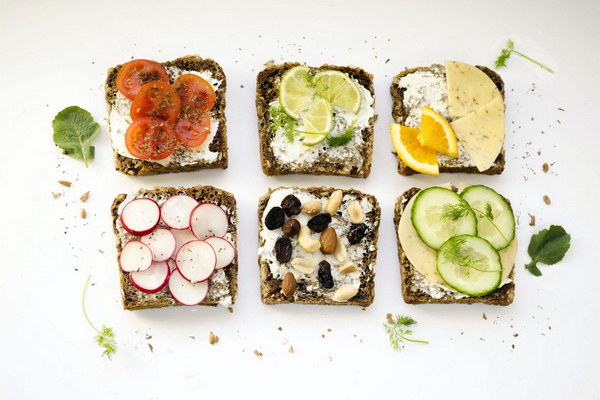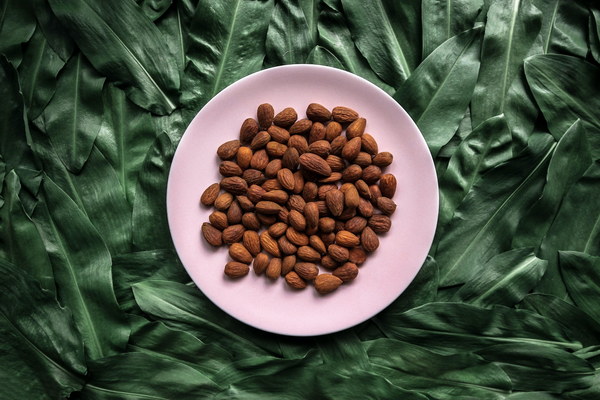Unlocking the Power of Nutrition in Cancer Treatment A Comprehensive Guide to Cancer-Fighting Foods
Introduction:
Cancer, a formidable adversary, has been a significant concern for humanity. While modern medicine offers a wide array of treatment options, incorporating cancer-fighting foods into the diet can significantly enhance the effectiveness of these treatments. This article delves into the world of cancer-fighting foods, exploring their benefits, and providing practical tips on incorporating them into your daily meals.
The Science Behind Cancer-Fighting Foods:
The concept of cancer-fighting foods revolves around the idea that certain nutrients can help prevent cancer, slow its progression, and improve the overall quality of life during treatment. These foods are rich in antioxidants, phytochemicals, and other compounds that combat free radicals, which are unstable molecules that can damage cells and lead to cancer.
1. Antioxidants:
Antioxidants are substances that neutralize free radicals, preventing them from causing damage to healthy cells. Some of the best sources of antioxidants include:
- Berries: Blueberries, strawberries, raspberries, and blackberries are rich in antioxidants and have been linked to a lower risk of certain cancers.
- Leafy Greens: Spinach, kale, and Swiss chard contain high levels of antioxidants, such as vitamin C and vitamin E, which protect against cell damage.
- Nuts and Seeds: Almonds, walnuts, flaxseeds, and chia seeds are packed with antioxidants, including vitamin E and selenium.
2. Phytochemicals:
Phytochemicals are naturally occurring compounds found in plants that have been shown to have anti-cancer properties. Some notable sources of phytochemicals include:
- Cruciferous Vegetables: Broccoli, cauliflower, cabbage, and kale contain sulforaphane, a compound that has been shown to inhibit the growth of cancer cells.
- Garlic: Garlic contains allicin, a potent phytochemical that has been associated with a reduced risk of certain cancers, such as stomach and colon cancer.
- Berries: As mentioned earlier, berries are rich in phytochemicals that have been linked to a lower risk of cancer.

3. Other Compounds:
Several other compounds have been shown to have anti-cancer properties, including:
- Flavonoids: Found in fruits, vegetables, and tea, flavonoids have been associated with a lower risk of cancer, particularly in the digestive tract.
- Curcumin: A compound found in turmeric, curcumin has been shown to have anti-inflammatory and anti-cancer properties.
- Resveratrol: Found in grapes and red wine, resveratrol has been linked to a reduced risk of cancer, particularly in the breast and colon.
Incorporating Cancer-Fighting Foods into Your Diet:
To maximize the benefits of cancer-fighting foods, it is essential to incorporate them into your diet in a balanced and varied manner. Here are some tips to help you get started:
1. Aim for a rainbow of colors: Include a variety of fruits and vegetables in your meals, as each color represents a different set of nutrients and antioxidants.
2. Eat cruciferous vegetables: Aim to consume cruciferous vegetables at least a few times a week, either raw, steamed, or sautéed.
3. Choose whole grains: Incorporate whole grains into your diet, such as brown rice, quinoa, and whole-wheat bread.
4. Use herbs and spices: Incorporate herbs and spices like garlic, turmeric, and ginger into your meals to enhance flavor and add beneficial compounds.
5. Stay hydrated: Drink plenty of water throughout the day to support overall health and help flush out toxins.
Conclusion:
While cancer-fighting foods cannot cure cancer on their own, they can play a significant role in supporting cancer treatment and improving overall health. By incorporating a variety of cancer-fighting foods into your diet, you can help create a supportive environment for your body during this challenging time. Remember to consult with your healthcare provider before making any significant changes to your diet.









